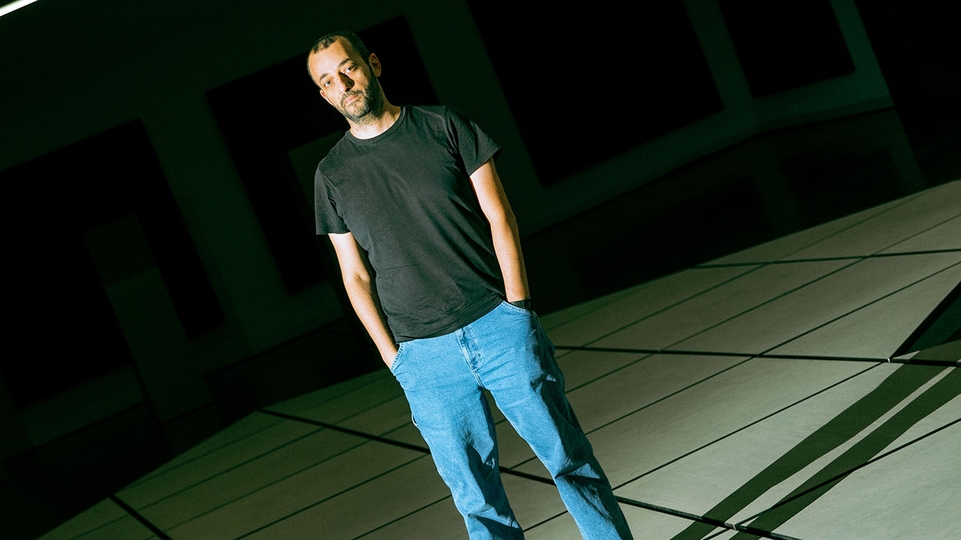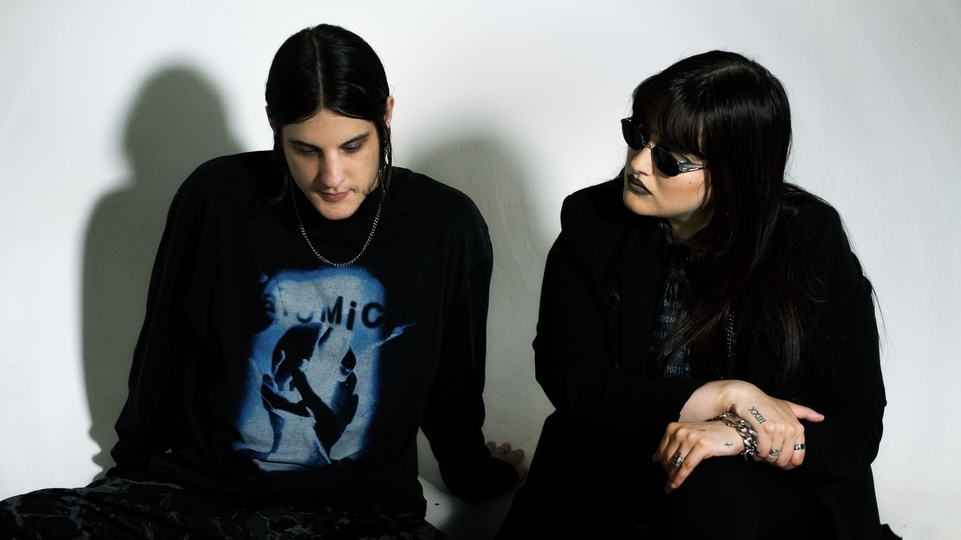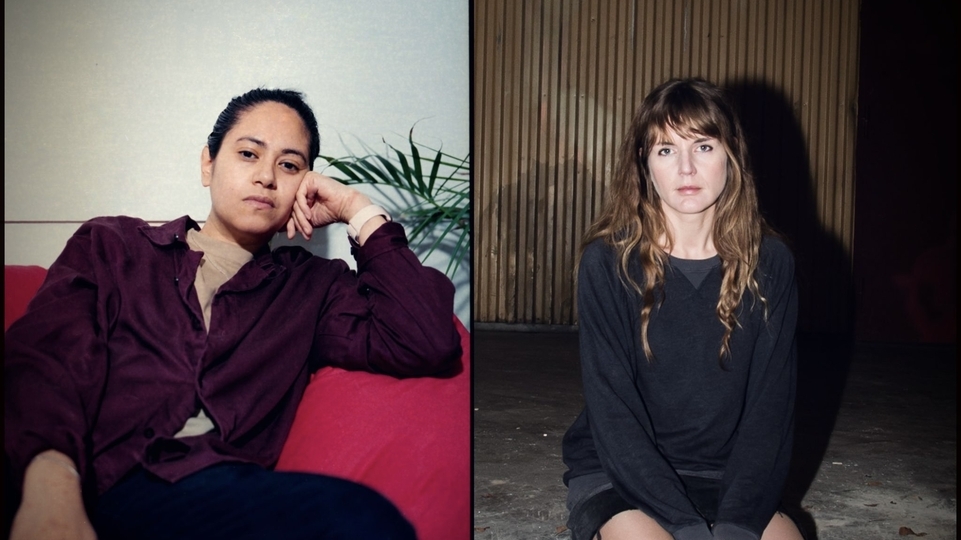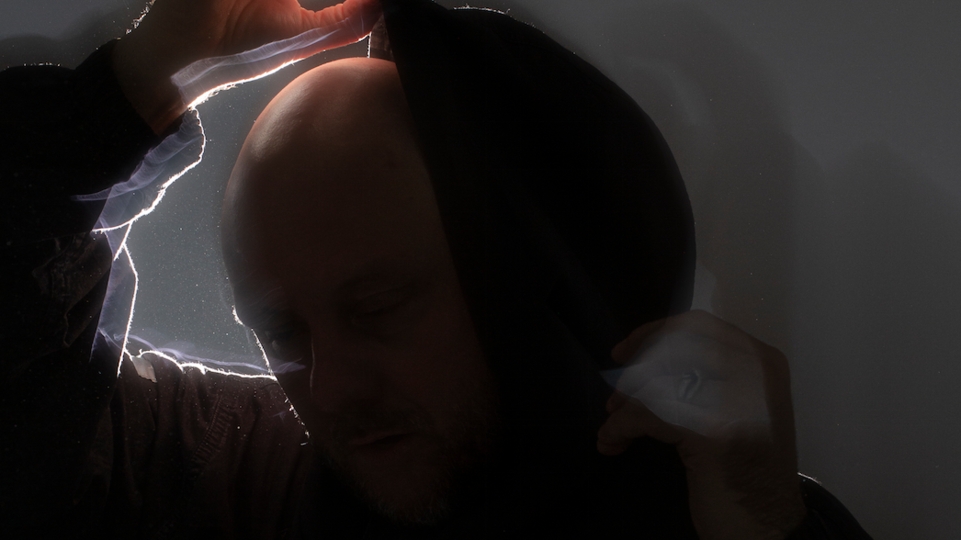
The radical noise of Shanghai's underground
Shanghai’s pioneering SVBKVLT label is creating a bold new future for electronic and club music, spearheading a movement inspired as much by Chinese tradition as avant-garde noise. DJ Mag meets some of the crew in London to talk global links, the influence of Hyperdub, and musical freedom
It’s a week-night at Corsica Studios and the loudest club in London is packed out and shrouded in fog. Metal barriers carve out a makeshift performance space for Mun Sing, tonight’s first act — also known as Harry Wright, one half of Bristolian techno punks Giant Swan. He stalks the audience from under a huge-brimmed visor, his hands held up like zombie claws. There’s a definite groove to grab onto under the vicious synth squeal, but this is industrial-strength club music: huge, raw, immediate. The wipe-clean pulse of big room techno feels a thousand miles away, and that feeling of distance — of being out on a limb, exploring a fresh and futuristic sound — isn’t a coincidence.
We’re at Ø, Hyperdub’s monthly party-and-art show in South London, and the label is hosting a showcase for Shanghai crew SVBKVLT. Representing a growing community of producers, DJs and visual artists in the Chinese megacity, SVBKVLT was launched by Manchester-born expat Gareth Williams (known to all as Gaz) in 2013 as an offshoot of his nightclub The Shelter. The famously dingy venue was the crucible for Shanghai’s club scene until its closure in 2016, and these days Gaz runs ALL — a shinier, slicker venue that’s the beating heart of an emerging subculture.
Their community is emblematic of a seismic shift in dance music worldwide. In recent years, the most exciting new scenes haven’t come from the usual hubs in Europe and North America — instead, we’re glimpsing an alternative network of clubbing communities who are fusing local tradition with cutting-edge electronics, in a global dance continuum. With a genre-surfing sound that tends towards the bass-heavy, brutal and intricate, SVBKVLT has come to represent the boundary-pushing best of the new wave of outernational dance styles.


The label roster is global and includes elders from Shanghai’s music scene, US expats living in China, and external allies like Mun Sing, whose Chinese heritage inspired his solo act. Wright visited ALL for the first time last year. “I’m half Chinese, so it was a big deal for me to go to China and experience it through music and not through a weird family tradition, as a rite of passage,” he says. “A lot of people were like, ‘Did it feel special connecting with your roots?’ But I’ve never felt less Chinese than going to Shanghai.”
Compared to the scene back in Bristol, his second home isn’t tied up in its own history, leaving DJs free to experiment. “A really positive part of Shanghai [clubbing] is that it doesn’t have to be four-to-the-floor constantly. A lot of times in Europe that’s the basis — it’s techno, and anything outside of that is weird.”
Mun Sing is joined at Ø by Korean-American artist Yen Tech, a recent Shanghai transplant with a sweaty and noisy live show, and two well-established Shanghai creatives: 33EMYBW, who makes hyper-rhythmic computer symphonies, and her partner Gooooose (that’s five Os), whose style is more glitchy and disorienting. The night ends in short, sharp shocks of grisly body music from Osheyack, an American who’s been in China for seven years.
The crew have just flown in from Unsound festival in Poland and they’re off to Milan tomorrow, continuing a European tour that comes near the end of a breakthrough year for the label, masterminded from their new base at ALL.
SVBKVLT’s connection to Hyperdub, meanwhile, goes back over 10 years; the labels’ attitudes and aesthetics feel deeply intertwined. Kode9 was one of the first international guests booked at The Shelter after it opened in 2007, and Williams has brought him back at least once a year ever since. “He’s always been very supportive of what we’ve been doing,” says Williams, “and at the same time, DJs in Shanghai have played a lot of Hyperdub music — there’s definitely an exchange going on.”


Kode9’s fascination with East Asian culture goes back to the ’90s with his postgraduate research on China, and it’s evident in Hyperdub’s visual identity too, from Kode9’s collaborations with virtual reality artist Lawrence Lek to the label’s “3rd Ear Cat” mascot — a version of the familiar waving cat trinkets seen across China and Japan. Visiting Shanghai “opened my eyes and ears to so much that was already lurking around as an interest,” says Kode9.
He points out that while China is famous for bootlegged gear, the cultural trade between East and West works both ways. “China is now developing a very specific, unique and extreme sonic and visual technological aesthetic — which scrambles a lot of Western taste grids.”
The only artists on tonight’s line-up who were born in China are 33EMYBW, who recently played with Aphex Twin in Manchester, and Gooooose. They’ve been playing music together for over a decade, making a name for themselves in Duck Fight Goose, an experimental band in a similar vein to math-rockers Battles. These days the pair are fully electronic, with 33EMYBW making hyper-futuristic club tracks for the attention-deficient, while Gooooose’s frantic creations whirr and glitch like ’90s IDM.
His last album, ‘Rusted Silicon’, was an attempt to craft a sound “that’s super dense, but where you can actually hear every part,” he explains backstage at Ø. “I try to achieve that with only computers. I want to make a seemingly analogue sound from a purely digital platform.”
33EMYBW’s album ‘Arthropods’ is SVBKVLT’s latest release, a suite of sci-fi moods and bionic footwork that feels both machine-made and strangely organic. Teamed with her avant-garde visuals and striking personal style — she wears her half-shaved hair in two rope-like plaits — San San’s 33EMYBW project captures the spirit of SVBKVLT as neatly as anyone on the label: chaotic, futuristic, mind-bending; ready to scramble your taste grids.


When Eli Osheyack arrived in Shanghai from the US seven years ago, he discovered a thriving scene at The Shelter: a damp and dirty basement, formerly a bomb shelter, frequented by a mixture of expats and “freaks”, he laughs. A small scene had coalesced around the venue, attracted by the edgy bookings — including international artists like Mykki Blanco and Shackleton — and the ravey atmosphere, in stark contrast to the brightly lit, Top 40-playing clubs that are common in Shanghai. Its serious soundsystem had a profound effect on artists like Gooooose, who hadn’t experienced that kind of volume before.
“Like, what the fuck is this sub-bass? How do you make it? We were curious about how to manipulate and play with the PA, not just the amp and speaker. Rather than letting the sound guy control our [band’s] sound, we wanted to control it ourselves,” he remembers. As the label grew, its artists — both expat and Chinese — embodied this independent attitude, inspired by nights at The Shelter. “We want to be genreless,” says Osheyack. In Shanghai, “there are no techno vanguards, or anybody to say, ‘This is the way it’s supposed to be done’. The audiences kind of accept everything.” Yen Tech thinks that this freedom to experiment is deeply connected to The Shelter, and now ALL.
“We’re totally different artists, but the space cultivated a room for us — it somehow all makes sense together.” His own live show represents the hard and heavy end of the SVBKVLT spectrum — think fog, sweat and primal screams. Yen Tech’s raw noise punk couldn’t be further from Gooooose’s super-dense songforms, but they share an uncompromising attitude. And besides, says Gooooose, the SVBKVLT crew have other things in common: “Most of the artists on the label are mean and sarcastic,” he deadpans, to laughter in the green room.
The Shelter closed at 11.40pm on New Year’s Eve, 2016 — several hours before its licence actually expired. The police showed up early “and were confused about what to do”, remembers Williams. “The whole street was cordoned off,” as officers tried to clamp down on this last hurrah. But the closure of The Shelter ushered in a new era for SVBKVLT, with Williams’ new club ALL opening seven months later, providing the crew with a dedicated base — a carefully designed venue that’s ideal for audio-visual performances. “It’s clean, too,” laughs Osheyack.


In 2019, ALL is the nerve centre of a bold new subculture. You can sense it in the cyberpunk flamboyance of Genome 6.66 Mbp, a young collective of DJs, VJs and producers that traces its genesis to a Kode9 show (who else?) at The Shelter. Launched in 2016 by Shanghai native Kilo Vee and Chifeng-born Tavi Lee, Genome has quickly carved out an identity of its own. From the armour-plated rhythms of star producer, and recent DJ Mag Fresh Kicks mix contributor, Hyph11e to the label’s bold visual aesthetic, from their flyers to their dyed hair and platform shoes, they’ve cultivated a digital-gothic look which plays with Western perceptions of Asian style.
The other major influence on this emerging scene is Chen Tianzhou’s Asian Dope Boys, an art project that uses live events — with DJs, fashion, ritualised dances and freaky performance art — to make connections between club culture and Chinese tradition. Fittingly, in the other room at Ø, Chen’s garish, gory video works are being screened on three walls. “Before [Genome], there was probably a 60:40 [ratio] of expats to Chinese kids at the club. Then all of a sudden, the Chinese kids realised that this shit actually belonged to them and the ratio flipped,” says Osheyack. “We didn’t realise that these kids could DJ like that, that they could make music like that.”
Genome would not have bloomed without the fertile soil of The Shelter, but the younger label brings a fresh perspective. Unlike the nomadic, expat-leaning roster of SVBKVLT, Genome is truly home-grown, and reflects a younger generation’s experiences of growing up in one of China’s busiest cities, eager for self-expression but limited by internet censorship and the so-called “great firewall of China”. Genome is about much more than the music, adds Williams. When they appeared, they “had their own visual identity, they had the whole package”.


ALL is still the only club in Shanghai booking cutting-edge club acts, and it remains the heart of the city’s bustling young scene. “A few [clubs] in the last year tried to dip their toe in, but the turnover for legitimate business in Shanghai is [high],” says Yen Tech. “It’s crazy that Gaz has been able to maintain this.” Things are getting harder, though — as well as rising rents, the club now welcomes more young Chinese clubbers, a clientele who don’t spend as much at the bar. “The expats drink a hell of a lot more,” smiles Williams, “so that was much easier. That’s the challenge right now.”
SVBKVLT is entering a new phase, as spelled out on this year’s impeccable ‘Cache 01’ compilation, which featured all the core artists alongside friends like Tzusing, the L.I.E.S. Records signing who used to run a night at The Shelter. SVBKVLT has also built up links with Nyege Nyege Festival in Uganda, where 33EMYBW and Gooooose played in September, and the Kampala-based DJ Slikback, who visited China to collaborate with Hyph11e on a split single.
The connection with the Nyege Nyege crew feels exciting not just for the music being made, but for the vistas of possibility it opens up. The cultural exchange will continue next year, with Slikback returning to China along with more artists from Kampala, and Gaz heading back to Africa to find new collaborators. As Williams notes, “China’s got a very short history of club music. The way we ran The Shelter, it wasn’t pushing one style. The same crowd would go to the techno night and to the reggae night and the experimental night.”
The result is a growing audience of clubbers ready to dance without prejudice. “It’s not that it’s genreless, but it’s taking inspiration from everything,” he adds. “You don’t have to stick to a bpm or a style — you just do whatever you want.”





